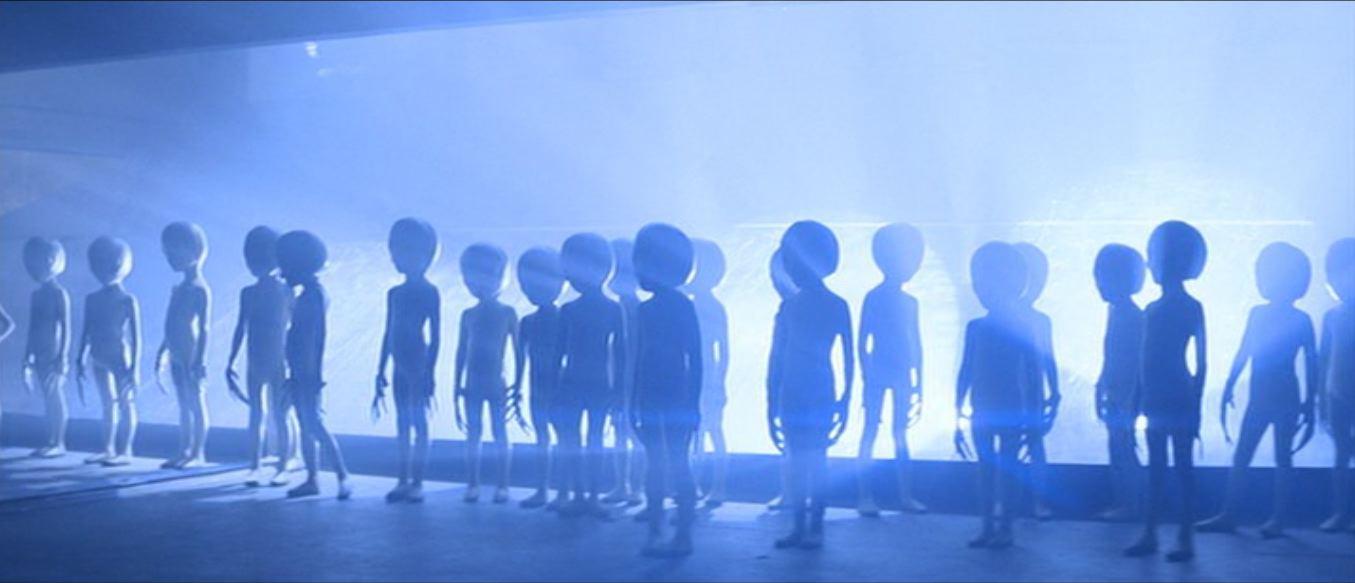5 Huge Misconceptions about Aliens

A typical Hollywood alien is "soft, squishy and big on mucus," in the words of Seth Shostak, senior astronomer at the SETI Institute in Mountain View, Calif. These sci-fi lumps of goo are inclined to abduct us, probe us, hover above us and even walk among us (in disguise, of course). But far beyond Hollywood's limited scope, aliens might really exist. What are they like, and how would they actually handle a human encounter?
Astrobiologists have deduced a few answers by combining their knowledge of life on Earth with their understanding of the cosmos as a whole. Their profile of ET might not be what you expected.
1. They won't come in peace
The renowned physicist Stephen Hawking once famously warned that humanity's efforts to radio communicate with extraterrestrials could be endangering us. If the aliens that detect our signals are technologically capable of coming here — proof that they are far more advanced than we — "I think the outcome would be much as when Christopher Columbus first landed in America, which didn't turn out very well for the Native Americans," Hawking said.
But how can we know the first thing about ET's behavior, be it malevolent or otherwise? Shostak said we need look no farther than Earth. Aggression evolved as a trait among Earthlings because it helps us obtain and protect resources. Though aliens would have arisen and evolved under totally different conditions, pressure to secure finite resources would probably have molded their behavior, too. "I suspect resources would be finite anywhere in the universe," Shostak told Life's Little Mysteries.
2. They didn't put us here
A popular fringe theory holds that humans are alien's gift to Earth. Some people say we were delivered here during a near pass of a life-bearing planet called Nibiru. This alleged planet, which has not actually been observed by astronomers, is said to skirt the edges of the solar system and swing inward from time to time. [A Field Guide to Alien Planets]
Get the world’s most fascinating discoveries delivered straight to your inbox.
"I get emails every week saying that Homo sapiens are the result of alien intervention," Shostak said. "I'm not sure why aliens would be interested in producing us. I think people like to think we're special. But isn't that what got Galileo and Copernicus into trouble — questioning how special we were? But if we're just another duck in the road, it's not very exciting."
3. They're immune to Earth's bacteria
Alien visitors to Earth are occasionally depicted in science fiction as being brought down by their own alien nature. Lacking immunity to Earth-based bacteria, they all die of infections. This wouldn't really happen. "Alien life forms wouldn't come here only to be done in by our bacteria, unless they were related biochemically to humans," Shostak told IEEE Spectrum. "Bacteria would have to be able to interact with their biochemistry to be dangerous, and their ability to do that is far from a sure thing."
4. They won't eat us
Just as they would not be recognized by the local pathogens as potential hosts, aliens would also not recognize Earth's organic matter as a potential food source. They couldn't digest us. And they probably wouldn't need to, anyway. As Jacob Haqq-Misra, an astronomer at Pennsylvania State University, pointed out, "A society capable of interstellar travel should have solved their development issues such that they do not need humans for food."
5. They won't mate with us
Human DNA can't combine with XYZ, or whatever it is that encodes alien life. "The idea that they've come for breeding purposes is more akin to wishful thinking by members of the audience who don't have good social lives," Shostak told IEEE Spectrum. "Think about how well we breed with other species on Earth, and they have DNA. It would be like trying to breed with an oak tree."
Follow Natalie Wolchover on Twitter @nattyover. Follow Life's Little Mysteries on Twitter @llmysteries. We're also on Facebook & Google+.
Natalie Wolchover was a staff writer for Live Science from 2010 to 2012 and is currently a senior physics writer and editor for Quanta Magazine. She holds a bachelor's degree in physics from Tufts University and has studied physics at the University of California, Berkeley. Along with the staff of Quanta, Wolchover won the 2022 Pulitzer Prize for explanatory writing for her work on the building of the James Webb Space Telescope. Her work has also appeared in the The Best American Science and Nature Writing and The Best Writing on Mathematics, Nature, The New Yorker and Popular Science. She was the 2016 winner of the Evert Clark/Seth Payne Award, an annual prize for young science journalists, as well as the winner of the 2017 Science Communication Award for the American Institute of Physics.
 Live Science Plus
Live Science Plus






